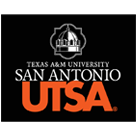Document Types
Individual Presentation
Location
Texas A&M University-San Antonio | HALL 102
Start Date
2-22-2024 4:50 PM
End Date
2-22-2024 5:10 PM
Track
Language Attitudes/Ideologies
Abstract
The Social Stratification of Spanish uptalk in the South Texas Border Town of Laredo, Texas
This study explores the sociolinguistic role of uptalk (also known as high rising terminals) in the local Spanish of Laredo, Texas. It particularly focuses on the interrelationship between uptalk, area of residence, and the self-identification as a fresa. High rising terminals (HRTs) are known to be characteristic to fresas, a Mexican cultural group that refers to individuals who belong to privileged social classes, live expensive lifestyles, and speak Spanish distinctively (Chaparro, 2016; Cordova Abundis & Corona Zenil, 2002; Martínez Gómez, 2018; Urteaga & Ortega, 2004). This cultural group is well known in Laredo and carries the same social definition as it does in Mexico. Through an ethnographic study, it was determined that area of residence and the fresa identity are significant markers of social class in this border town. Three socially and economically defined areas were identified in Laredo: north, south, and west. The south and the west areas were commonly associated with lower-class individuals, while the north was associated with social prestige. Through the analysis of 45 sociolinguistic interviews, the study finds that north area Laredoans produce significantly more HRTs than their west and south counterparts. The participants’ area of residence was the most significant predictor, followed by self-identification as a fresa, and reported financial difficulties. My results show that there is social variation in uptalk production in the local Spanish of Laredo. As a border town, Laredo is home to many heritage speakers and little has been done to explore heritage bilingual’s intonation and Mexican American Spanish uptalk. Kim (2023) finds that heritage speakers in Southern California produce uptalk with similar frequency between English and Spanish, revealing that uptalk is not necessarily English-specific. My study shows that uptalk also exists in the Texas borderlands, along with the Mexican cultural group (fresas) which may be influencing the local Spanish.
References:
Chaparro, S. (2016). Fresas, Nacos y Lo que le Sigue: Towards a Sketch of Two Mexican Emblematic Models of Personhood. Working Papers in Educational Linguistics, 31(1), 43. Retrieved from Linguistics and Language Behavior Abstracts (LLBA). (1797903464)
Cordova Abundis, P., & Corona Zenil, M. A. (2002). Feminine Colloquial Speech in the Dialogue of Guadalupe Loaeza’s Las ninas bien. Signos Literarios y Linguisticos, 4(2),51–61.
Kim, J.Y. (2023). Spanish-English Cross-Linguistic Influence on Heritage Bilinguals’ Production of Uptalk. Languages, 8(1).
Martínez Gómez, R. (2018). Fresa style in Mexico: Sociolinguistic stereotypes and the variability of social meanings. The University of New Mexico.
Urteaga, M., & Ortega, E. (2004). Identidades en disputa: Fresas, wannabes, pandros, alternos y nacos. Revista Jóvenes Del Instituto Mexicano de La Juventud, 14, 114–132.
Recommended Citation
Rangel, Natalie, "The Social Stratification of Spanish uptalk in the South Texas Border Town of Laredo, Texas" (2024). 11th National Symposium on Spanish as a Heritage Language. 21.
https://digitalcommons.tamusa.edu/heritage_spanish/SCHEDULE/Thursday/21
Included in
Digital Humanities Commons, Feminist, Gender, and Sexuality Studies Commons, Language Interpretation and Translation Commons, Latin American Languages and Societies Commons, Spanish and Portuguese Language and Literature Commons
The Social Stratification of Spanish uptalk in the South Texas Border Town of Laredo, Texas
Texas A&M University-San Antonio | HALL 102
The Social Stratification of Spanish uptalk in the South Texas Border Town of Laredo, Texas
This study explores the sociolinguistic role of uptalk (also known as high rising terminals) in the local Spanish of Laredo, Texas. It particularly focuses on the interrelationship between uptalk, area of residence, and the self-identification as a fresa. High rising terminals (HRTs) are known to be characteristic to fresas, a Mexican cultural group that refers to individuals who belong to privileged social classes, live expensive lifestyles, and speak Spanish distinctively (Chaparro, 2016; Cordova Abundis & Corona Zenil, 2002; Martínez Gómez, 2018; Urteaga & Ortega, 2004). This cultural group is well known in Laredo and carries the same social definition as it does in Mexico. Through an ethnographic study, it was determined that area of residence and the fresa identity are significant markers of social class in this border town. Three socially and economically defined areas were identified in Laredo: north, south, and west. The south and the west areas were commonly associated with lower-class individuals, while the north was associated with social prestige. Through the analysis of 45 sociolinguistic interviews, the study finds that north area Laredoans produce significantly more HRTs than their west and south counterparts. The participants’ area of residence was the most significant predictor, followed by self-identification as a fresa, and reported financial difficulties. My results show that there is social variation in uptalk production in the local Spanish of Laredo. As a border town, Laredo is home to many heritage speakers and little has been done to explore heritage bilingual’s intonation and Mexican American Spanish uptalk. Kim (2023) finds that heritage speakers in Southern California produce uptalk with similar frequency between English and Spanish, revealing that uptalk is not necessarily English-specific. My study shows that uptalk also exists in the Texas borderlands, along with the Mexican cultural group (fresas) which may be influencing the local Spanish.
References:
Chaparro, S. (2016). Fresas, Nacos y Lo que le Sigue: Towards a Sketch of Two Mexican Emblematic Models of Personhood. Working Papers in Educational Linguistics, 31(1), 43. Retrieved from Linguistics and Language Behavior Abstracts (LLBA). (1797903464)
Cordova Abundis, P., & Corona Zenil, M. A. (2002). Feminine Colloquial Speech in the Dialogue of Guadalupe Loaeza’s Las ninas bien. Signos Literarios y Linguisticos, 4(2),51–61.
Kim, J.Y. (2023). Spanish-English Cross-Linguistic Influence on Heritage Bilinguals’ Production of Uptalk. Languages, 8(1).
Martínez Gómez, R. (2018). Fresa style in Mexico: Sociolinguistic stereotypes and the variability of social meanings. The University of New Mexico.
Urteaga, M., & Ortega, E. (2004). Identidades en disputa: Fresas, wannabes, pandros, alternos y nacos. Revista Jóvenes Del Instituto Mexicano de La Juventud, 14, 114–132.

